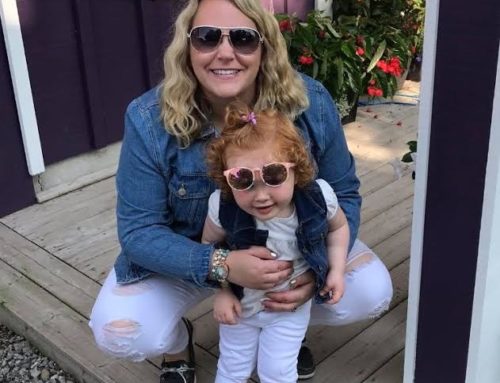We hear about trauma a lot. As our understanding of mental health disorders evolves, we have learned that trauma doesn’t just happen to those serving in combat, or even those who are in life threatening situations, trauma is our own personal reaction to a situation that we find distressing and unable to cope with (put very simply!)
When we hear that someone has experienced “trauma” we automatically think of PTSD. Again, this is a diagnosis that we are starting to wrap our heads around and when someone tells us they are experiencing PTSD we can kind of understand what that means. But there are many ways that we cope with trauma, and one of those ways is through dissociation.
These disorders involve experiencing a disconnection from thoughts, memories, surroundings, actions and identity. This is detachment from reality, but not a loss of reality like you would see in psychosis.
Dissociation is not something many of us will have heard of, or understand, and it is a complex reaction to trauma. As with most mental health disorders, no two people will experience dissociation in the exact same way, the story I share with you today is one person’s experience with this.
As I explained, dissociative disorders usually develop as a way to cope with trauma, this often develops in early childhood as a reaction to abuse, or living in a frightening or unpredictable environment. In order to keep difficult memories at bay a child may continue to dissociate as a response to stressful situations throughout life.
When I sat down to interview Angela, I will be honest, I did not picture her as someone with this type of disorder. She is a nurturing, cool, calm and collected highly intelligent woman who works in healthcare, and that right there, is the whole problem with the perception of mental health. Even when we think we don’t have these pictures in our minds of who experiences mental health issues, we are all conditioned to assume that someone successful and well respected couldn’t possibly have a mental health disorder.
I often begin these meetings asking people what motivated them to share their story now, and Angela explained to me that she wants to be a mental wellness advocate. She then went on to mirror my initial thoughts, “I’m not someone you would look at and say “she has mental health problems.” Mental health problems are a fact of life. They’re a part of the human condition, and they teach us so that we can grow.”
Growing up in a small town in Eastern Canada, she explains the complex dynamics of her childhood and community, “There was a lot of passive aggressive bullying behavior, nothing overly violent, though I was bracing myself quite a bit,” she said, “There was a lot of putting people down. It didn’t help that I was a sensitive kid, an exquisite empath. I felt the pain and vulnerability of the person who was being targeted, and I felt the delight of the bullies as they took self-esteem and peace of mind like it was lunch money. When you experience that consistently, it starts to wear you down”.” Angela goes on to say how she believes that this led to trapped feelings and she said this impacted her greatly as a sensitive child. “By the time I got home from school, I would have to run it off.”
When we went on to discuss her family she explained, “My childhood in many ways was very nurturing,” she said, “In other ways it was dysfunctional. But that’s not out of the ordinary, right? We all joke about the dysfunctions within our families.” When asked how that has impacted her, she said, “I have residual rage, confusion, and shame, and that’s been a real energy drain over the years.”
Angela said that her understanding of her childhood came much later in life, “I had a discussion with my best friend just a few years ago about the fact that I had to deal with something, because my history seemed so normal by appearances, but I was having textbook symptoms of abuse,” she explains. “I had a couple of repressed memories surface, but they didn’t seem like things big enough to be a repressed memory. Not the kind of thing you’d expect to see in a textbook. Still, I needed to sort them out, because my reactions to them were pretty textbook”
“I hope I am able to give something unique here,” said Angela, “you could never make a movie out of my life, it is not that dramatic, but my responses to it have been.”
Angela talked about her earliest memory of dissociation being around Grade 7/8 but said that it seemed like normal behaviour to her at that point.
She recalls a defining moment being in 2014/2015 when she was in a long-term relationship. “My partner was picking up on it, but not understanding in an empathetic way at the time,” she said. “There was a lot of shame and embarrassment from my end, and a lack of understanding from his end.”
Her partner at the time would notice changes within Angela and she describes the 6 main changes that would happen within her when she began to dissociate.
- Something would shift
- Her choice of words would change
- Body language would change
- Mannerisms would change
- Tone of voice would change
- There would be no empathy left, “It was all about me.”
Angela compares dissociation to an eating disorder in that it is, “protective at the time, but you get stuck in a cycle that is very difficult to get yourself out of”.
When asked to describe what it is like to dissociate, she goes into great detail, having spent years studying this particular disorder to better help her understand, “the senses go offline,” she explains. “It’s an unintentional, protective mechanism.”
“The perceived threat has to be recognized before dissociation can stop,” she said. “The situation, conversation or person has to stop/leave, before your nervous system can come out of dissociation, and before your rational mind can come back online”.
Put simply, “we dissociate when we feel trapped,” said Angela.
One of the frightening things about dissociation is that the person who is experiencing it, doesn’t notice it is happening, “It takes skill and help from a loved one to find out how dissociation looks and feels for you.”
I asked Angela to walk me through an experience with dissociation, to explain it to me in a way that someone with no knowledge of this disorder would understand. “A great example is in a previous relationship I had, which was not abusive, but certainly had its dysfunctional moments. There were times when I felt trapped in a situation unable to leave it, calm it down, or get it resolved.”
“At first, I would get very quiet. I’d choose my words very carefully, and monitor my movements very carefully, not moving very much at all, except for a few subtle telltale twitches. I would breathe very shallow,” she explained. “This is a nice example of what freeze mode can look and feel like”. Freeze mode is a term that Angela uses to describe a state of her nervous system when under stress.
“Then, I would try to leave or talk myself out of the situation, so flight mode would take over,” she explains. “My ability to be rational would be offline at this point.”
“Then, if I couldn’t escape the situation, fight mode would take over. If you heard me, you would hear me shouting something like ‘YOU NEED TO STOP. I HATE THIS!‘ And I would start to use blaming language”.
“I wasn’t trying to be malicious,” she explained. “I was just so full to capacity that I couldn’t self-regulate. The inner child takes over, and the inner child is completely self-centered”.
She describes herself as taking on a child-like demeanor as she dissociates. “My manner of speaking, the words I chose, even my body language would be different. To an outsider I would look like a drama queen. My partner would say “stop with the drama”, and rightly so, but that just made me feel more shame, which made the feeling of being trapped even worse”.
Dissociation ends when the situation resolves itself, and for Angela, the resolution of an argument would “bring her senses back online.” Raised voices, and particularly yelling, is a significant trigger for her, and very much increases the likelihood that her nervous system will move into dissociation. She wanted to make it clear that she is grateful for the relationship that’s being discussed here.
I asked her what happens once her senses come back online. She takes a deep breath and it is obvious that this is a difficult thing to re-live. “It sucks when the expression of emotion comes back,” she said. “I cry when I am out of dissociation, and not a regular lady cry,” she laughed. “It is a deep cry with coughing, it can last around 10 minutes and I try to avoid being seen or heard when this is happening.”
“It feels in my body, highly dramatic, like a storm,” she recalls. “Then I am very tired after.”
“In dissociation we are two separate entities and only one is functioning, and to reintegrate after that separation is exhausting and the exhaustion lasts for about a day after.”
After the crying has finished, she finds she needs to sleep and then have a big workout the next day to release her stress energy. She said of this routine, “It gets me back to my rational, creative thinking and allows me to be socially ‘elegant.’”
Using exercise to help her cope has been an effective tool, but has also come at a great expense to her health, “I have over-trained four times,” she said. “If I didn’t do yoga now, I would have fibromyalgia.”
She explains that people need to have a balanced approach to their mental health and that counselling is potentially one aspect, exercise is another, but that things like music and art are also good outlets.
Newly married, Angela describes her husband as, “the greatest man I’ve ever met.” She goes on to say, “He is intelligent enough to be able to understand it. It has only happened twice with him and neither of those times were his fault.”
As I begin to wrap up the interviews, I usually ask what the interviewee wants people to understand about their mental health disorder.
“I want people to understand that the adult is no longer able to self-regulate. The inner child takes over and the child’s job in that moment is to do whatever it takes to protect the adult,” she said.
Talking about the future of mental health, Angela said it is important that we start to teach our children how to tune into the 5 senses and learn the basics of how the nervous system works.
Working in healthcare, she tries to educate children how to identify their feelings through using certain words like, “stormy, buzzy, numb.” She said this is how they learn to check in with their own nervous system, but more importantly, it teaches them that they have control over it. “I talk about the nervous system to kids, the same way I do to adults,” she said. “We need to give them the knowledge and understanding and we should start talking to them about it as soon as they can talk!”
Lastly, Angela had this to say, “I want people to understand that the experience and perception of situations is the deciding factor of whether or not a person gets traumatized, not the situation itself, so people need to reserve their judgements.”









 Sharon Walker, MSW, RSW
Sharon Walker, MSW, RSW Jordon Iorio Hons. BA, RSW
Jordon Iorio Hons. BA, RSW Christine Bibby, B.S.W., M.S.W., R.S.W.
Christine Bibby, B.S.W., M.S.W., R.S.W. Brianna Kerr, RSW
Brianna Kerr, RSW Danielle Vanderpost, RSW
Danielle Vanderpost, RSW Daniela Switzer, MA, C.PSYCH
Daniela Switzer, MA, C.PSYCH Tammy Adams
Tammy Adams Jade Bates, RMT
Jade Bates, RMT Caitlin Schneider
Caitlin Schneider Dr. Crysana Copland
Dr. Crysana Copland
 Amy Dougley
Amy Dougley Emily Green
Emily Green Bill Dungey, RSW
Bill Dungey, RSW



 Jessica Moore, RSW
Jessica Moore, RSW Abigail Wragge, RSW
Abigail Wragge, RSW